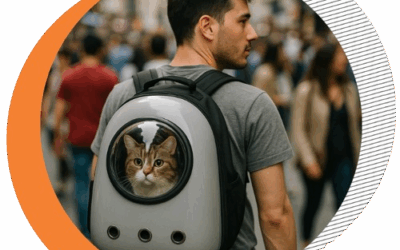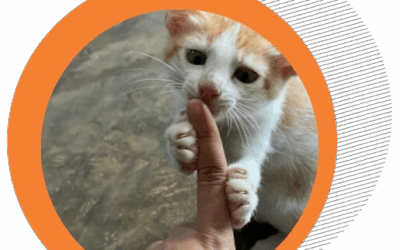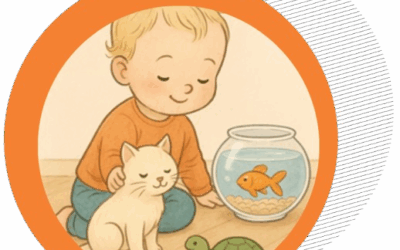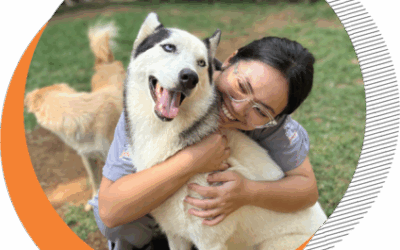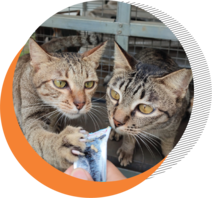
World Zoonoses Day July 6, Awareness Must Be Raised
By: Maryam Smeer
Translator : AWI Team
Zoonoses are increasingly discussed. In fact, every July 6 is celebrated World Zoonoses Day.
For your information, zoonosis is a disease that can be transmitted from animals to humans or vice versa.
The transmission process of zoonosis is when microorganisms move from animals to humans or vice versa. These microorganisms can be bacteria, viruses, fungi, and parasites such as protozoa and worms.
Image 1. JAAN Domestic Shelter

Transmission can be done in 3 ways, such as:
1. Direct contact
Zoonotic diseases can be transmitted through direct contact with infected animals. For example, being bitten, exposed to animal saliva or body fluids, or animal feces.
2. Indirect contact
Zoonotic diseases can also be transmitted through indirect contact. This means that the contact occurs through intermediary media. Examples of media are other animals, water and land. Animals that are usually the medium of transmission are types of arthropods such as mosquitoes, fleas, flies, etc.
Image 2. JAAN Domestic Shelter

3. Consumption
Zoonoses can potentially spread through the consumption of animals harboring disease-causing microorganisms. When someone eats or drinks something dangerous, the risk increases. For instance, raw milk without pasteurization, undercooked meat, or eggs. In addition, eating fruits and vegetables tainted with disease-ridden animal excrement carries some risk
60% of newly reported infectious illnesses worldwide, according to WHO, are zoonotic. Since transmission is quite simple, be aware of how to prevent it. Some actions that can be taken to lessen the possibility of zoonotic transmission include the following:
1. Keep your hands clean by washing your hands frequently. Even if you don’t touch animals whatever, we should wash our hands properly. and diligent. If there is no water and soap, then a disinfectant containing alcohol can be used. At least this disinfectant contains a minimum of 60% alcohol.
2. Keep the animal’s environment clean. We need to pay attention to the cleanliness of animal waste, food and drink. Immediately cleaning dirt and food and drink containers is one of the best efforts.
3. Avoid mosquito and tick bites.
4. Avoid animal bites and scratches.
Numerous psychological, social, and health advantages can come from owning a pet. Pets, however, can spread zoonotic infections if this is not coupled with proper hygiene.
Thus, be mindful of the animals’ needs for hygiene while also providing for them.
Source:
Related Post :
Not Just a Fashion Statement: Carrying Cats Should Prioritize Welfare, Not Aesthetics
By: drh.Mikeu Paujiah, M.MIn recent years, we have increasingly seen a trend on social media: cats being taken for walks in transparent backpacks that fully expose their bodies to the outside. At first glance, it looks cute, stylish, and adorable. However, when viewed...
More Than Just Style: Ethical Ways to Carry Cats According to Animal Welfare Principles
By : drh. Mikeu Paujiah, M.M.In the era of social media, we often see cats being taken out in transparent backpacks that display their entire bodies to the world. Cute? Perhaps. But is it comfortable and safe for cats? Not necessarily.Cats are highly sensitive beings....
I’m Not Trash: The Story of a Cat Who Was Once Abandoned
I was abandoned. Not because I was naughty. Not because I was sick. But because I was no longer seen as important. A small cardboard box became my last shelter before being thrown to the side of the road. People walked by, some glanced, but none stopped. I stayed...
Build Your Child’s Responsibility Through Pet Care
By: Drh. Mikeu Paujiah, Dipl. MontessoriKeeping a pet is not just about filling leisure time. For children, taking care of a pet can be a powerful way to learn empathy, responsibility, and compassion. However, without proper guidance from parents, this process may be...
Pets Suitable for Children, According to Age!
Find the right pet for your child based on their age. From fish to dogs, check out our child-friendly pet recommendations here!By: Drh. Mikeu Paujiah, Dipl. MontessoriChoosing a pet for your child isn’t just about picking the cutest one. Every animal has its own...
Tips for Traveling with Pets: Journey & Post-Arrival Care
By: drh. Mikeu Paujiah & Maryam SmeerTraveling with your pet? Check out tips for a safe and comfortable journey, plus post-trip care to keep them healthy and happy during the holiday!After making thorough preparations before traveling, it's time to understand how...

